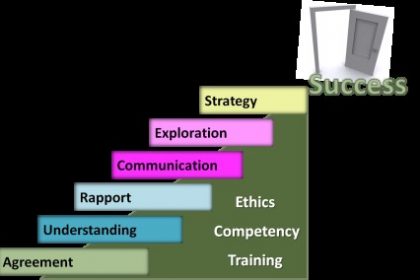Prior to starting a coaching engagement, the coach and client have conversations about coaching, ethics, and the parameters of the relationship. A formal agreement, written in most parts of the world and verbal in others, outlines roles and responsibilities. Even the ethics, parameters, and agreement call for coach training.
When a coaching engagement starts, it is incumbent on the coach to get to know the client. This means having an awareness of the client’s culture, experience, values, beliefs, and goals. A process for this is one part of what is learned in coach training. 
Every single coaching session the coach is to ask the client what they want to accomplish in the session and how they want to accomplish it. The client sets the agenda and chooses from various techniques and processes for how to have the conversation.
While these points seem basic, the reality is that it is normal for people to want to drive the conversation and figure out the answers. It takes skill to ensure the other person drives the conversation and figures out their own answers. Remember, the solution for one may not be the solution for another. It takes skill and patience to hold the space for clients to discover and strategize.
A properly trained coach is highly effective in partnering with clients so that the client is fully empowered. The client defines the focus, agenda, and what works for them. The coaching skills of embodying a coaching mindset and establishing and maintaining agreements take time to develop. These skills applied in coaching engagements directly impact the opportunity for the





